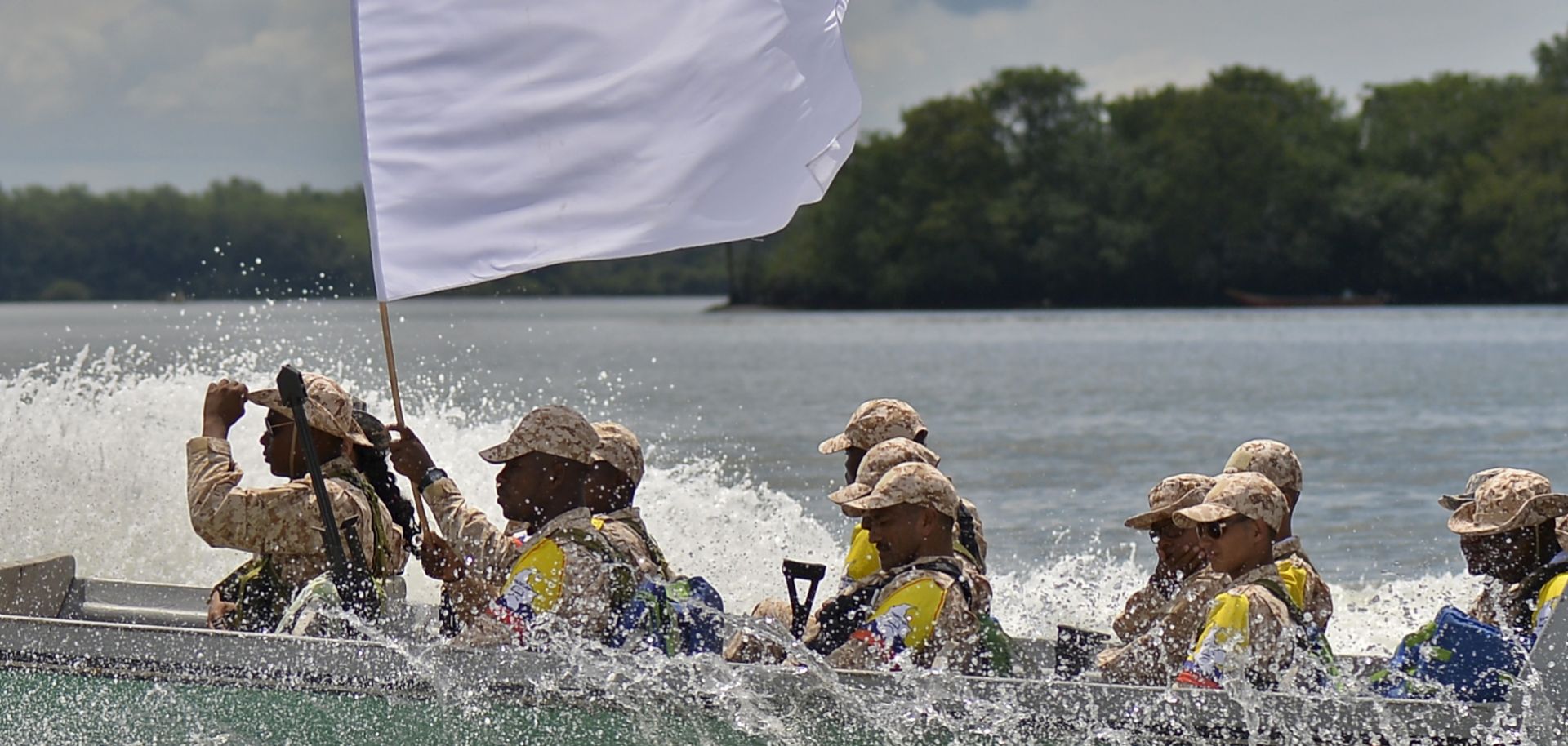ASSESSMENTS
Even a Stalled FARC Deal Has Jump-Started Colombian Stability
Jul 18, 2017 | 09:00 GMT

FARC insurgents, flying a white flag of truce, head toward the Pacific coast city of Buenaventura, Colombia, to surrender their weapons to U.N. monitors. In agreeing to lay down its arms, the rebel group lost the power it once had to threaten the government. Some FARC factions have continued to pursue criminal activities.
(LUIS ROBAYO/AFP/Getty Images)
Subscribe Now
SubscribeAlready have an account?
